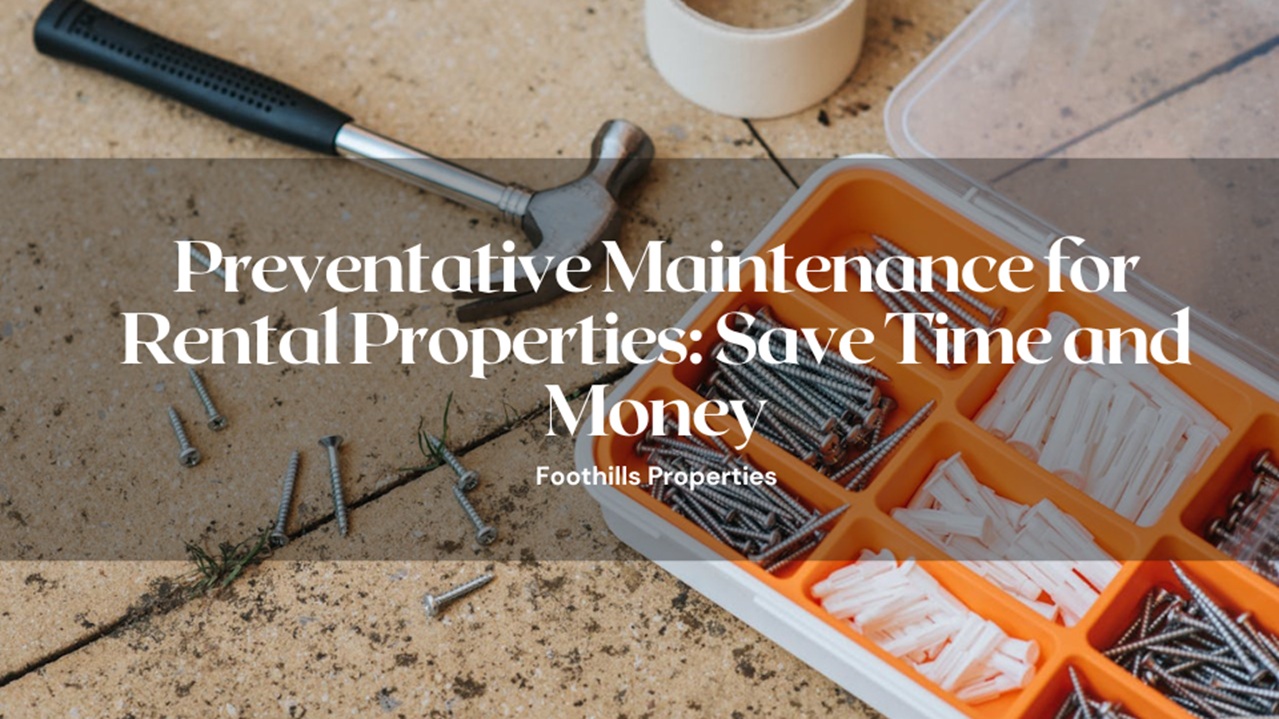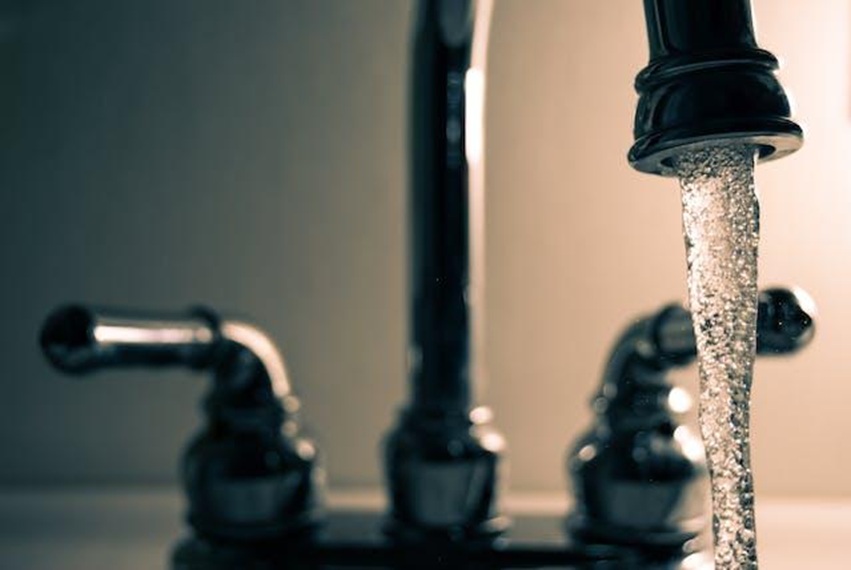
As a landlord, safeguarding the long-term value of your property is fundamental to your success. While addressing repairs promptly is important, adopting a proactive approach through preventative maintenance truly sets you apart.
In this guide, Foothills Properties will share strategies that will help keep your property in excellent condition, minimize unexpected expenses, and ensure your tenants remain satisfied!
What Exactly Is Preventative Maintenance?
Preventative maintenance means taking early action to spot and fix potential problems before they escalate into costly repairs or emergencies. It focuses on key property systems such as plumbing, electrical wiring, HVAC, and structural elements, making sure everything operates safely and efficiently.
By conducting regular inspections and routine upkeep, landlords avoid urgent, disruptive breakdowns. This approach not only lowers overall maintenance expenses but also extends the lifespan of your property’s components.
Moreover, it creates a secure, comfortable home environment that fosters tenant trust and encourages longer stays. Properties that are consistently well cared for also attract a higher number of prospective renters, boosting occupancy and rental income.
Preventative Maintenance vs Reactive Maintenance
Preventative maintenance involves handling small repairs early to stop bigger, costly problems from developing. Though it requires some upfront costs like regular inspections, it saves time and money by keeping the property and surrounding areas well-maintained.
Besides the extra costs, reactive maintenance disrupts tenants, sometimes forcing temporary moves at the landlord’s expense. This can cause tenant dissatisfaction and higher turnover, making it a less effective approach than preventative care.

Benefits of Preventative Maintenance for Landlords
1. Saves You Time
Handling emergency repairs can be a major time sink and disrupt your tenants’ lives. Staying ahead with scheduled maintenance and addressing minor issues early helps you avoid last-minute rushes and stressful crises.
2. Reduces Your Legal Risks
As a landlord, you are legally required to provide a safe, habitable property. Neglecting routine maintenance can lead to hazardous conditions, such as mold from water leaks or electrical faults, that might cause accidents or health problems.
Staying on top of upkeep not only protects your tenants but also demonstrates your responsibility, helping shield you from potential lawsuits.
3. Cuts Overall Costs
Although preventative maintenance requires some investment upfront, it often leads to significant savings down the line. Catching small problems early prevents expensive repairs and extends the life of critical systems, avoiding costly replacements.
4. Preserves Property Value
Properties that are properly maintained retain their market value far better than those allowed to deteriorate. Consistent care ensures your property remains competitive, attracting higher-quality tenants and commanding better rents.
5. Encourages Tenant Retention
Tenants are more likely to renew their leases if they feel their living space is well cared for and that their concerns are addressed promptly. As a landlord, preventative maintenance builds goodwill and reduces tenant turnover, meaning fewer vacancies and a more stable income stream.

Effective Preventative Maintenance Strategies for Landlords
1. Develop an Annual Maintenance Calendar
Create a detailed schedule that outlines all the regular maintenance tasks your property requires throughout the year. This should include seasonal checks and routine inspections that keep everything running smoothly. A clear timeline helps you stay organized and ensures nothing is overlooked.
2. Keep Up With Landscaping and Exterior Care
First impressions matter. Regularly maintain lawns, trim shrubs, and clear debris to keep the property looking inviting. Inspect the exterior for early signs of wear, like chipped paint or cracked siding, and address these issues quickly to prevent more extensive damage.
3. Respond Promptly to Tenant Repair Requests
Tenants often spot minor issues before they escalate. Acting swiftly on their repair requests, whether it’s a dripping faucet or a faulty appliance, not only prevents bigger problems but also shows tenants you value their comfort.
4. Implement Routine Pest Control
Pests can quickly turn a rental property into a nightmare. Schedule regular pest inspections and treatments to prevent infestations by rodents, termites, or insects that could harm the property or disturb your tenants.
5. Schedule Plumbing Inspections
Leaks under sinks or near water heaters can cause extensive water damage and mold growth if left unchecked. Regular plumbing checks catch these issues early, saving you costly repairs and protecting your property’s structure.

6. Maintain Hvac Systems
Heating and cooling units require regular attention to operate efficiently. Replace filters, clean ducts, and arrange annual professional inspections. Well-maintained HVAC systems improve tenant comfort, lower energy bills, and reduce breakdowns.
7. Test Smoke and Carbon Monoxide Detectors
Tenant safety is paramount. Regularly check these detectors and replace batteries to ensure they function correctly. Maintaining these devices helps prevent fire hazards and carbon monoxide poisoning, reducing your liability.
8. Inspect Roof and Gutters
Look for signs of roof damage and clear gutters to avoid blockages. Proper drainage prevents water damage that can affect foundations and cause costly repairs.
9. Address Minor Wear and Tear Quickly
Small problems like scratched walls or worn carpets might seem trivial but can escalate if ignored. Prompt repairs maintain the property’s appearance and help avoid expensive replacements later.
10. Prioritize Fire Safety
Ensure fire extinguishers are accessible, smoke alarms are operational, and fire exits remain clear. Regularly inspect all fire safety equipment, including sprinklers and alarms, to protect tenants and limit your liability.
Bottom Line
A preventative maintenance mindset protects your investment and promotes a positive experience for your tenants. It lowers repair expenses, reduces liability risks, and boosts tenant retention, all key to maintaining a profitable rental business.
By establishing a well-organized maintenance plan, you can enjoy fewer emergencies, reduced vacancies, and happier residents over the long term.
If you’re ready to safeguard your rental property’s value and keep your tenants satisfied, contact Foothills Properties today.
We’re here to help you develop and implement a maintenance strategy tailored to your needs!








